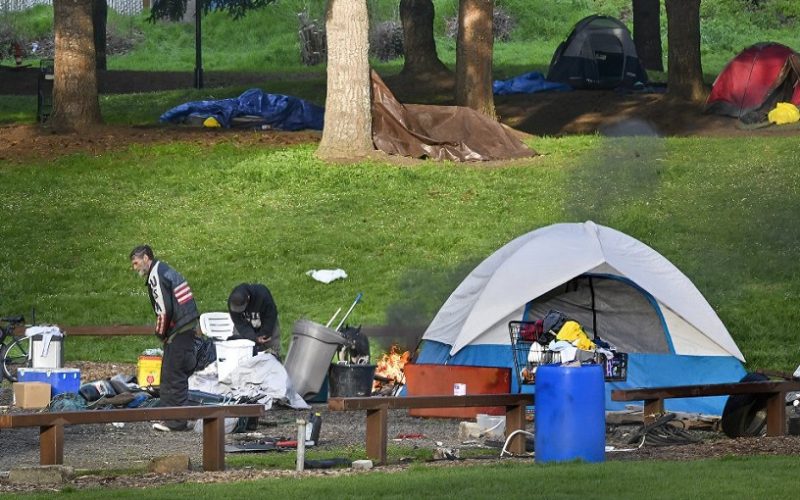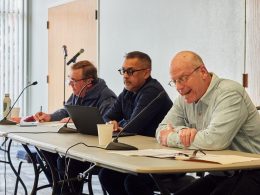Salem, OR – Oregon’s cities are making a strong case for more power and funding from the state Legislature, with key priorities focusing on infrastructure improvements, more flexibility in spending hotel tax revenue, and increased authority to regulate homeless camps. These requests were presented during the League of Oregon Cities’ biannual City Day at the Capitol, where local leaders advocated for policies to address ongoing challenges in their communities.
Addressing Homelessness and Anti-Camping Laws
A central issue for Oregon cities is the state’s current law restricting local governments from removing homeless camps. The law, which was championed by Gov. Tina Kotek when she was Speaker of the Oregon House, limits the ability of cities to ban people from sleeping outdoors unless such restrictions are “objectively reasonable” in terms of time, place, and manner. This provision has led to confusion and varying interpretations among cities, according to officials from the League of Oregon Cities, who argue that this patchwork of regulations creates inconsistency and difficulty for both city governments and those experiencing homelessness.
Grants Pass, for example, has been caught in a legal battle following the U.S. Supreme Court’s ruling that cities can regulate homelessness more strictly. In response, local officials are seeking a clearer definition of what constitutes “objectively reasonable” and want to address the legal requirement that forces cities to provide advance notice of impending lawsuits from homeless individuals. While some legislators have proposed bills to repeal the 2021 law, it remains unclear whether these efforts will gain traction in the current legislative session.
Infrastructure Funding for Housing and Development
In addition to homelessness, city leaders are also lobbying for increased funding to address infrastructure needs, particularly water and wastewater systems. Without proper infrastructure, many planned housing developments across the state have been delayed. Bend, for example, has a $66 million shortfall to complete critical sewer projects, which are needed to unlock the construction of more than 1,200 new homes and thousands of jobs.
Gov. Tina Kotek and other top lawmakers have recognized the importance of infrastructure to the state’s housing goals. Kotek emphasized the need for sustained investment in these essential services to spur housing development. House Speaker Julie Fahey (D-Eugene) also highlighted the lack of funding for infrastructure in urban growth areas, which has hindered the potential for building new homes in communities like hers.
Reworking Hotel Tax Revenue Allocation
Another major issue for cities is the restriction on how local hotel tax revenue can be used. Under a law passed over 20 years ago, 70% of new local lodging taxes must be spent on tourism marketing. However, many cities argue that this requirement no longer aligns with current needs, especially in tourism-heavy areas like the Oregon coast.
Toledo Mayor Rod Cross, representing the League of Oregon Cities, explained that cities want more flexibility to use a portion of the hotel tax revenue for essential services such as public safety and infrastructure maintenance. In cities like Newport, which sees its population swell from around 10,000 to over 40,000 during peak tourist season, the influx of visitors puts a strain on local services. Cross argued that allowing local governments to use some of the hotel tax revenue for improving services would ultimately benefit the tourism industry by ensuring cities remain attractive destinations for repeat visitors.
Looking Ahead
While some of these proposals are likely to find support among both Democratic and Republican legislators, others—such as rolling back the restrictions on homeless camp regulations—could face significant resistance. Nevertheless, city officials are hopeful that a productive dialogue with lawmakers will lead to solutions that address the pressing needs of Oregon’s communities. As the legislative session progresses, local leaders will continue to push for a more flexible and responsive approach to homelessness, infrastructure, and tourism-related revenue.











